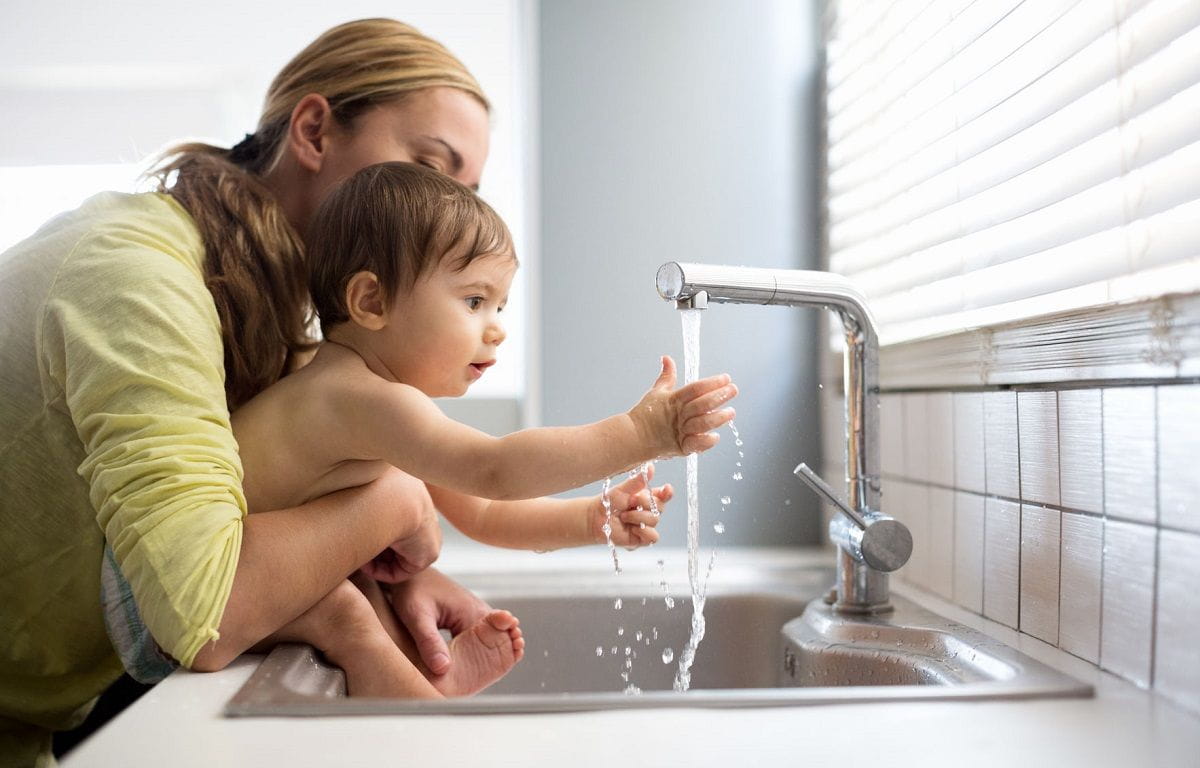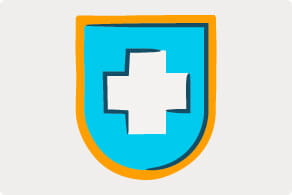

Illness is a part of life, but when children get sick, it can distress even the most unflappable adults. Current events have put everyone’s focus on health and safety, so it’s a good time to refresh yourself (and your loved ones) on how to prevent the spread of germs.
Curious about KinderCare Health and Hygiene Practices?We follow strict hygiene and cleaning procedures, including disinfecting high-touch surfaces like door handles, and rotating toys so we can sanitize them even more frequently.
As part of our daily curriculum, we emphasize the importance of hand washing and align with recommended 20-second hand-washing techniques. We reinforcing this action with children multiple times throughout the day.
Here’s what you can keep in mind when it comes to keeping kids healthy at daycare: 1. Getting sick is (usually) part of growing up.According to the American Academy of Pediatrics, most children will have eight to 10 colds in the first two years of life alone! However, if your child is sick or if you are ever concerned about their physical or emotional health, contact your pediatrician for a professional opinion.
2. Early exposures can help later in life.According to Dr. Dawn Nolt, a pediatrician specializing in infectious diseases at Oregon Health Sciences University Doernbecher Children’s Hospital, “Episodes of minor infections early in life may rev up the child’s body to make immune factors that can protect against future infections as the child grows older.”
Does this mean we should give up on preventative measures? Far from it. During cold and flu season, prevention (like hand washing) is still a family’s very best friend.
3. Wash hands often and well.Hand washing—and helping kids learn to do so properly —is a big thing at KinderCare because it works! Parents can contribute to the health of the community by keeping up good hand-washing practices at home. Our rule of thumb in our centers is that children must follow the recommended 20-second hand-washing techniques (we do it while singing two rounds of “Row, Row, Row Your Boat”).
The goal is to be thorough while equating hand washing with happy time. At home, do what you can to make it fun, whether that involves dinosaurs, dancing, or some water-play time. Hands should be washed after coming home from school, playing with pets, before eating, after eating, and of course, after using the restroom or changing diapers.
4. Know your daycare sickness policy—and honor it.We all want to keep our communities healthy. Make sure you know your child care’s policy on when a child must stay home due to illness—and follow it. In fact, this is a great question to ask a center before deciding where to enroll. Your center should have a well-developed plan and policy in place for a range of illnesses—and they should be able to answer your questions about it.
5. Arrange a back-up buddy system.You’ll need a back-up plan for situations when your child does get sick and you can’t stay home with them. Before you start school, get a go-to friend or trusted caregiver on your authorized pick-up list for emergency scenarios.
6. Boost your child’s nutrition.Ensuring your kids get plenty of rest and nutritious whole foods helps keep immune systems strong. For an at-a-glance primer on healthy eating, check out Harvard’s School of Public Health’s Plate Power.
When to Keep KinderCare Students HomeIllness happens. We want to keep our whole community of learners safe and healthy, so we ask parents to help us by honoring our KinderCare Exclusion for Illness Policy.
All illnesses, and the specific policies around them, are different, but we ask that parents keep their children home if they exhibit the following symptoms:
• Fever of greater than 100°F without use of fever-reducing medication, especially with symptoms involving behavior changes that prevent a child from participating in classroom activities
• Diarrhea that can’t be contained in a diaper, or bowel movement frequency of two or more above what is normal for the child
• Vomiting with fever or vomiting more than two times in 24 hoursWe ask that your child stay home until they’ve been symptom-free without medication for at least 24 hours. If you choose to keep your child at home, just call your center and let us know.
Ongoing updates to our coronavirus policy can be found here .
See how we keep your child safe and sound all day long
Choosing the right child care center is important, and we know life can be hectic. Take a quick virtual tour and see our center from the comfort of home!
We are available to answer your questions.